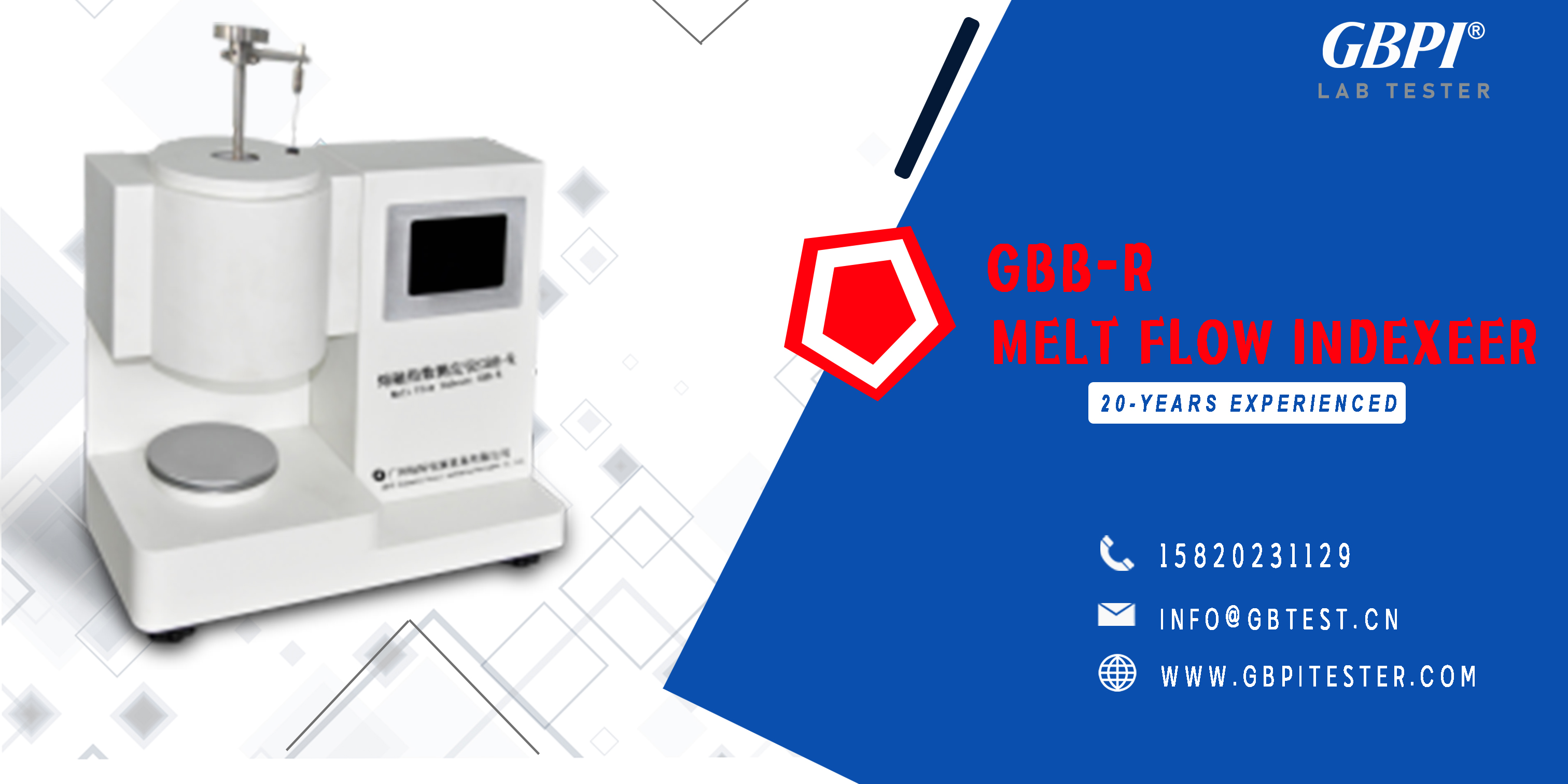In the world of plastic manufacturing, precision matters. Whether you're producing packaging materials, automotive components, or consumer electronics, understanding how your raw materials behave under heat is essential. One of the most important indicators of a thermoplastic material’s processing performance is its Melt Flow Rate (MFR) or Melt Volume Rate (MVR). This is where the GBB-R Melt Flow Index Tester, developed by Guangzhou Biaoji’s expert R&D team, comes into play.

What Is Melt Flow Rate, and Why Should You Care?
The melt flow rate refers to how easily a thermoplastic polymer flows when melted under specific temperature and load conditions. It's measured by how much material extrudes through a standard die over a given period. This value—expressed as either mass (MFR, g/10min) or volume (MVR, cm³/10min)—can significantly impact the molding and extrusion behavior of the material.
Imagine producing a batch of polypropylene components. If the MFR is too high, the material might flow too quickly, leading to flash or overpacking. Too low, and the mold might not fill properly, causing structural defects. Knowing the exact melt flow rate helps technicians fine-tune their processing parameters, reduce waste, and ensure consistent product quality.
Meet the GBB-R: Precision Meets Reliability
The GBB-R Melt Flow Index Tester is designed in full compliance with standards such as GB/T 3682, ISO 1133, and JB/T 5456. It is suitable for testing a wide range of polymers, including:
Polyethylene (PE)
Polypropylene (PP)
Polystyrene (PS)
ABS resin
Polycarbonate (PC)
Nylon
Fluoroplastics
Acetal resins
The device operates by heating the plastic sample to a specified temperature and applying a standard load. The molten material then flows through a calibrated die, and the machine calculates the flow rate automatically. Both MFR and MVR values can be measured with high repeatability and accuracy.
Who Needs a Melt Flow Index Tester?
The GBB-R is essential for any industry that relies on thermoplastic materials. Its main users include:
Plastic raw material manufacturers: for quality classification and batch consistency
Injection molding factories: to optimize molding parameters and reduce defects
Extrusion and film producers: for continuous quality control during production
Petrochemical companies: for product development and R&D testing
Testing labs and research institutes: for comparative material analysis
In industries like food packaging, pharmaceutical packaging, automotive parts, and consumer goods, the flow behavior of polymers directly influences production speed, product stability, and overall cost efficiency. Having a reliable instrument like the GBB-R gives companies a clear advantage in process control and quality assurance.
Key Benefits at a Glance
Standards-compliant: Fully meets ISO 1133 and GB/T 3682
Wide material compatibility: Suitable for a variety of thermoplastics
Accurate and stable results: Ensures repeatability across different tests
Easy operation: User-friendly interface and automation options
Ideal for both lab and production line: Flexible for different testing scenarios
Final Thoughts
In modern plastic manufacturing, the smallest details make the biggest difference. The melt flow rate of your polymer can determine the success or failure of your production process. Investing in a high-quality, reliable melt flow index tester like the GBB-R not only ensures accurate testing results but also enhances your entire production workflow.
Whether you’re developing new plastic materials or ensuring consistency in daily operations, the GBB-R is the smart choice for manufacturers who value quality and control.

 info@gbtest.cn
info@gbtest.cn



 en
en ru
ru es
es ar
ar
